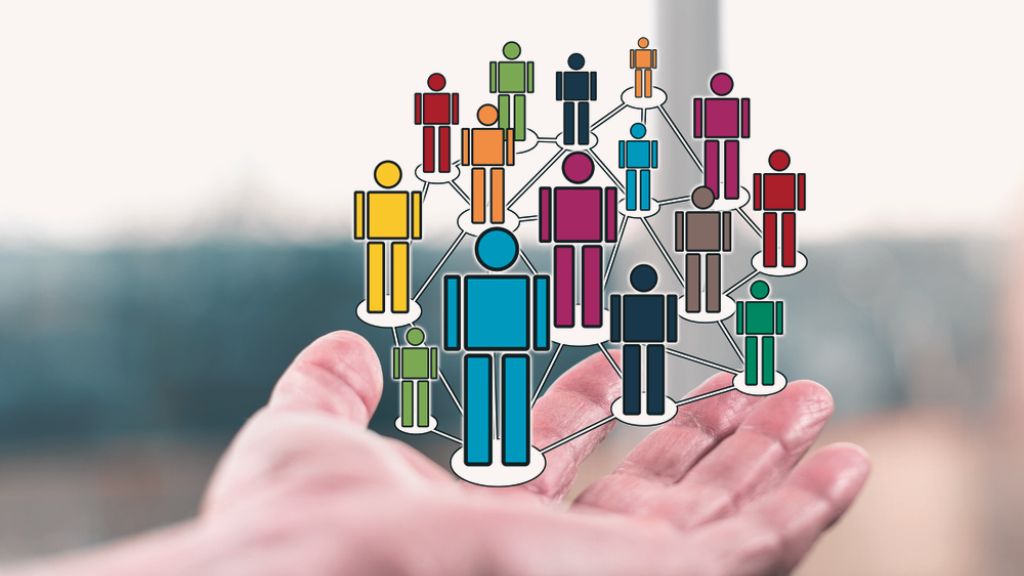When we hear the word “resource,” we often think of things like water, oil, or money. However, one of the most important resources is people. The idea of “people as resource” means that human beings are valuable assets to society. People contribute to the economy, improve their communities, and drive progress through their skills, knowledge, and hard work. Just like natural resources, people have potential that can be developed and used for the benefit of everyone.
In this blog, we will explore what do you understand by people as resource, why this concept is important, and how investing in people through education, health, and training can lead to a better future for all.
Understanding People as a Resource
The term “people as resource” refers to the idea that people, with their abilities, talents, and knowledge, are valuable assets to any society or economy. Just as natural resources like coal or water are important for a country’s growth, so are people. When people are healthy, educated, and skilled, they contribute to the development of their communities and the nation as a whole.
People as a resource are crucial because they have the power to shape the future. Unlike natural resources, which can be depleted over time, human resources can grow and improve with investment. When governments and societies invest in education, healthcare, and skill development, they are effectively improving their human resources. This, in turn, leads to a more prosperous and sustainable society.
Also read: Difficulties Challenges And Problems That I Was Able To Solve And Overcome
The Importance of Education
One of the most important ways to develop people as a resource is through education. Education helps people acquire knowledge, skills, and values that helps them to contribute to community in significant ways. A well-educated population is more likely to innovate, create new technologies, and find solutions to complex problems.
For example, consider how the development of technology has transformed the world. Behind every new invention or scientific discovery are people who have been educated and trained in their fields. Without education, these advancements would not be possible.
Moreover, education is not just about learning facts; it also helps people develop critical thinking, creativity, and problem-solving skills. These abilities are essential for addressing the challenges that societies face, such as climate change, poverty, and healthcare.
The Role of Health
Health is another critical factor in developing people as a resource. A healthy population is more productive and capable of contributing to the economy. When people are healthy, they can work, study, and take care of their families. Whereas, bad health can limit a person’s ability to reach their full potential.
For example, if someone is sick and cannot work, they may struggle to support themselves and their family. This can be a reason to a cycle of poverty and hardship. By investing in healthcare, societies can ensure that people stay healthy and are able to contribute to the economy.
Good health also means more than just physical well-being. Mental health is equally important. When people have access to mental health care, they are better equipped to handle stress, build relationships, and achieve their goals. Therefore, investing in both physical and mental health is essential for developing people as a resource.
Skills and Training
Education and health are essential, but they are not enough on their own. To fully develop people as a resource, it is also important to provide opportunities for skills development and training. This helps individuals gain specific abilities that are needed in the workforce, making them more employable and productive.
For instance, a person who receives training in computer programming or carpentry can use these skills to find a job, start a business, or contribute to their community. Skills training allows people to adapt to changes in the economy and stay relevant in a constantly evolving job market.
Additionally, vocational training and skill development can help reduce unemployment and poverty. When people have the skills needed for available jobs, they are more likely to find work and improve their standard of living. This, in turn, benefits the entire society, as more people are contributing to the economy and reducing the burden on social welfare programs.
What Do You Understand By People As Resource in Economic Development
People as a resource play a critical role in economic development. A country’s wealth is not just measured by its natural resources or infrastructure, but also by the quality of its human resources. When people are well-educated, healthy, and skilled, they are more likely to contribute to the economy in positive ways.
For example, a country with a highly skilled workforce is more likely to attract foreign investment, as companies are drawn to places where they can find qualified workers. This leads to job creation, economic growth, and improved living standards for the population.
Moreover, people as a resource are essential for innovation and entrepreneurship. When people know how to start their own businesses or create new products, they help the economy by creating jobs and earning money. This entrepreneurial spirit drives economic progress and helps societies adapt to changing global markets.
Social Benefits of People as Resource
Beyond economic development, viewing people as a resource has significant social benefits. When societies invest in their people, they create a more equitable and just world. Access to education, healthcare, and training ensures that everyone has the opportunity to succeed, no matter whats their background or circumstances.
This focus on human development also helps reduce social inequalities. When people have the tools they need to improve their lives, they are less likely to fall into poverty or become marginalized. This creates a more inclusive society where everyone has a chance to contribute and thrive.
Additionally, when people are valued as a resource, there is a greater emphasis on human rights and dignity. This means that individuals are treated with respect and given the support they need to reach their full potential. In turn, this fosters a sense of belonging and purpose, leading to a more harmonious and connected society.
Challenges in Developing People as a Resource
While the concept of people as a resource is powerful, there are challenges to realizing its full potential. Not all countries have equal access to education, healthcare, and training, which can limit the development of their human resources.
For example, in some parts of the world, children do not have access to quality education due to poverty, conflict, or lack of infrastructure. This limits their opportunities and reduces their ability to contribute to their society’s growth.
Similarly, inadequate healthcare systems can prevent people from staying healthy and productive. Without proper medical care, individuals may suffer from preventable diseases or mental health issues, reducing their ability to work and improve their lives.
Furthermore, discrimination and social inequalities can prevent certain groups of people from fully participating in the economy. For instance, women, minorities, and people with disabilities may face barriers to education, employment, and healthcare, limiting their potential as a resource.
Also read: Who Should You Contact if You Have Trouble Making Payments Once You Leave School
Conclusion
People as a resource is a powerful concept that highlights the value of human beings in driving economic and social progress. By investing in education, health, and skills development, societies can unlock the potential of their people and create a brighter future for everyone.
However, it is essential to address the challenges that limit access to these opportunities, ensuring that all individuals have the chance to contribute and thrive. When we view people as a resource, we recognize their importance in shaping the world around us and building a better tomorrow.

